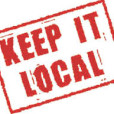So, I missed writing this for Open Access Week, or Fair Use Week, or Open Education Week, but I think these are topics that we should be focusing on every day of our professional lives; not just 3 weeks of the year.
Imagine for a moment that you’re doing an ego search (not that I would ever do that) and you find that someone is selling an article you wrote (with your name on it) as part of a book or journal that you never contracted with. Sure, you published the article, but for a completely different publisher. Now you find that some random company is making money off your work. You contact them and demand that they remove your article because what they’re doing is illegal, but they insist they are in the right.
Sound implausible? Did you sign away your copyright to the publisher? Or is your book chapter or article licensed under Creative Commons CC-BY? Then what they might be doing is perfectly legal based on what you agreed to. You, like most of us, just didn’t understand the implications of what you were signing.
Making your work open access is a fantastic thing to do. Our goals as faculty should be to promote and share knowledge as widely as possible, and the fruits of our research will be much more likely to benefit society when they are freely available for anyone to access. Too many authors completely sign away any rights to their work, often forcing libraries at their institutions to pay for students and faculty to use something the institution has essentially already funded. Sometimes they feel they have to in order to get tenure, but some are just unwilling or ill-equipped to read the terms of their contract. I still remember an instructor being annoyed with me that we didn’t have access to her Springer book chapter because PSU had “already paid for my research.” Sorry, I wasn’t the one who blindly signed a contract that didn’t even allow for depositing a preprint into an institutional repository.
When we were getting PDXScholar off the ground at Portland State, I talked to many faculty in my disciplines about getting their work into the repository. So many had no idea what the contract they signed did or did not allow them to do with their work and what it did or not not allow the publisher to do. I think we focus so much on the research and then the writing, then we spend months going through the peer-review process so that, by the time we receive an author agreement, we kind of mentally feel like our work is already done. I’ll admit that I wasn’t too savvy about this myself early on, but I’ve always made sure that I could make my articles and book chapters free available online in some way, shape, or form. I wrote about this back in 2013 when I was on the tenure track at PSU.
Now, I think the work we do in terms of negotiating the contract is as important as all the work that came before it. If few people can access your research, what was the point of doing it in the first place?
But it is also short-sighted to only think about whether or not we can make our work open to the public. We should also be concerned with what the publisher can do with our work. We usually think that once the work is published in the journal that the publisher is done with it, but we are sometimes signing contracts that allow them to do much, much more with our intellectual output. I once signed a contract for a book chapter that essentially said I could do anything I wanted with the work (in terms of republication), but so could the publisher. It was better than the first contract I was offered, which gave me no rights to do anything, even put the chapter in our repository, but it gave them the ability to republish my chapter in any other publications in the future.
How would you feel if you found your work published in a book that you knew nothing about? How would you feel to know that random people were making money off work you didn’t see a dime for (even originally)?
Several articles from The Scholarly Kitchen blog have made the point that just because something is published OA doesn’t necessarily mean that it can’t be reproduced for profit:
- CC-Bye Bye! Some Consequences of Unfettered Reproduction Rights Become Clearer
- More Creative Commons Confusion: When Does NC Really Mean “Non-Commercial”?
- Getting Beyond “Post and Forget” Open Access
Many OA journals make their work available through the Creative Commons CC-BY license, which allows for the maximum reuse, including the creation of derivative works and selling the work commercially, so long as the creator is given credit. I could take a bunch of articles with CC-BY licenses, package them into an anthology, and sell that anthology. All I’d have to do to stay within the license is to credit each author. But I could sell their work and not give them a penny of the profit. So could any publisher.
I would be deeply uncomfortable with the idea of licensing any of my work under a Creative Commons CC-BY license. I’m not ok with random people with whom I have no relationship making money off my work. I would guess that many people feel that way.
I’ve published in two open access journals in the past 18 months, both of which had Creative Commons non-commercial licenses. In Collaborative Librarianship, they license the work under a CC-BY-NC-ND, which allows people to share the work, with credit, so long as they don’t make money off it, but people also can’t make derivative works. I’m ok with that. The idea of someone being able to change and republish my article in some way I hadn’t intended does make me slightly uncomfortable, though I have no problem with my work being open to anyone to read, share, and benefit from. College and Research Libraries‘ default license is CC-BY-NC (which does allow for derivative works), but I love that C&RL allows the author to specify a different license for their work in the author agreement, giving the ultimate freedom to the author to define how their work can be used.
While I’d rather my articles be CC-BY-NC-ND, there are other materials I create of which I would be happy to allow derivative works to be created. Those include tutorials, presentation slides, LibGuides, and perhaps some course materials. For those, a CC-BY-NC lisense should do the trick.
My blog is licensed under a CC-BY-NC-SA license (SA=Share Alike), which seriously limits the use of my content. People who use it must not only be non-commercial entities, but must license what they create from my work using the same license. That means that whatever they add to my work must be licensed in the exact same way. I feel ok about having that requirement with my blog content.
When we were looking at what license to use for our LibGuides at PCC, we toyed with the idea of a share-alike license in the spirit of “we want everyone to share their stuff.” Ultimately, we went with a CC-BY-NC license because we know that many libraries do not have the ability to put any sort of license on their LibGuides (due to college/university rules) and this would limit their use more than having no license at all. We want to make it clear that we welcome other librarians grabbing our content. Why reinvent the wheel?
But we need to consider more than just under what license our content is being released. If the publisher retains copyright of your work, they can ultimately do whatever they want with it. Just because it has a non-commercial license doesn’t mean that the publisher can’t allow another publisher to use your work for their profit. The Creative Commons license just tells people what they can do without needing to ask permission. Ultimately the copyright holder has the right to do what they want with the content unless your contract specifically spells out limitations. With the exception of the two articles I published in Emerald Journals, which I’m pretty sure I dropped the ball on, I’ve retained copyright on all of my publications, including my book Social Software in Libraries.
I’m not a lawyer or any kind of expert on contracts, but, ultimately, there are four key things I look for in any contract these days:
1. Who will hold the copyright?
2. What rights are we giving to the publisher and what could they consequently do with our work in a worst case scenario?
3. What rights do we have to the work and can we make it available, in some way, freely online (if it isn’t already through the journal)?
4. If the work is open access, under what license is it made available to the public?
Whether a contract says it or not, this is our intellectual property. It came from our minds and our considerable efforts. We should work to make sure we have some agency over how our work is made available and who benefits financially from it.
What success stories have you had in dealing with publishers? What frustrations? Any tips for those new to the universe of scholarly publishing?
Update: Just after posting this, Micah Vandergrift shared with me Bethany Nowviskie’s post which came to a very different conclusion about Creative Commons licensing. I think that’s great! Whatever decision we come to as individuals about how we’d like our work to be used, let it be well-considered.







I just had this discussion with faculty earlier this week at an author’s rights workshop. We talked about ways in which people might attempt to monetize CC-BY works, and whether this would be ok. For instance, if someone is providing a service such as print copies of digital material, that might be ok, whereas if they are selling the article digitally people would feel uncomfortable with that. I emphasized that while CC-BY is considered the true open access, it’s still ok to want to archive your work under whatever license you choose, as long as you haven’t signed over your copyright without license to self-archive.
What you are delineating is a distinction between open and free. Some of us, such as myself, are fine with others taking my work and re-using it for their own profits. I do not create scholarship for profit but for the process and joy of scholarly creation. As long as I’m recognized as the original creator, I wish others who can benefit from my work all the benefit they can reap.
My main concern is with people, many in our own profession, who do not respect CC-BY and often times do not credit the original creators. You find this practice occurring mostly with blog posts and alternative forms of scholarship. This in my mind is the greater issue to be addressed as alternative forms of scholarship proliferate. BTW, I’m going to reference this blog post in a presentation I’m giving in two weeks and will make sure to give you full credit. I can assure you I will be making no profit (honorarium) off this presentation.
Margaret, that’s great that you’re discussing this with faculty! The more information they have, the more comfortable they will feel advocating for a decision they’re comfortable with.
Jill, I think it’s great that you’ve thought of what you’re comfortable having done with your scholarship and made a well-reasoned decision. If you’re fine with someone taking your content, republishing it, and making money off it, that’s good. What matters is that you thought about it. I think a lot of people published in open access publications because of their feelings about toll-access publishing, and don’t realize the implications of CC-BY. I think what you mention about people not crediting CC-licensed sources is part and parcel with the issue I mention. It comes from a lack of understanding of what CC licenses really mean and require. I recently developed our LibGuides guidelines at PCC and I have a lot of info in there about crediting CC-licensed images (showing them various technical ways they can provide credit in a LibGuides box).
For many years I have refused to assign copyright to publishers and instead granted them a licence to reproduce my work (for a fee if that’s what they want). By retaining copyright, I ensure no-one (else) can make money from my work. Publishers, including Elsevier, are often initially unwilling to agree such a licence, but in the end have always given way, presumably on the grounds that they need my article more than I need them. I then put my output on one or more repositories under a CC licence that includes NC. But all this requires persistence, and will probably not be useful to early career researchers.
Pingback: Protecting rights or creating barriers? » on your MARC 2.00
Pingback: Read your contract: Being OA isn’t enough...